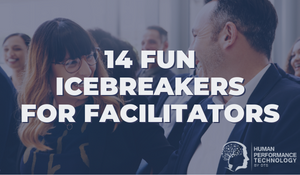What is Decision-Making?
-1 Minute Read
Decision-making is the process of analysing all aspects of a situation to make sound and timely decisions. It involves identifying and selecting alternatives based on values, preferences, and beliefs. Every decision-making process produces a final choice, which may or may not prompt action.
Key Characteristics of Effective Decision-Making
- Analytical Acumen: Skilled decision-makers can think clearly under pressure and understand the time constraints for making a decision.
- Data Integration: They gather relevant data and facts before taking action but recognise that excessive analysis can hinder progress.
- Adaptability: As new information becomes available, they are prepared to update their decisions, showing flexibility and responsiveness.
- Critical Inquiry: They excel in asking pertinent questions, probing assumptions, and drawing logical conclusions.
- Impact Awareness: They consistently consider the impacts and consequences of their decisions, ensuring well-rounded and informed choices.
Decision-Making in Management
Decision-making is a core management function, as managerial activities revolve around making decisions. This process can be complex, involving several steps:
- Identifying a Problem: Recognising the need for a decision.
- Gathering Information: Collecting relevant data and facts.
- Evaluating Alternatives: Considering different courses of action.
- Making the Choice: Selecting the best option based on the evaluation.
In organisational contexts, decision-making can have far-reaching consequences and often involves checks and balances to consider all stakeholders' interests. Decisions can range from routine operational choices to strategic decisions that shape the organisation's direction. Effective decision-making requires a balance between speed and quality, and it is crucial to revisit decisions and adapt to changing circumstances.
Key Terms in Decision-Making
To succeed in decision-making, it is important to understand and use a shared language. Here are some key terms and their definitions:
- Facts: Data points grounded in evidence and verifiable (e.g., specific KPI measurements).
- Assumptions: Data points believed to be true but not easily verifiable (e.g., a leader’s understanding based on observations).
- Givens: Incontrovertible data points (e.g., core organisational values).
- Decision Type: The focus of the decision, including:
- Strategic: Long-term decisions shaping the organisation's direction.
- Tactical: Mid-term decisions implementing the strategy.
- Operational: Short-term, day-to-day decisions ensuring efficient operations.
- Alternatives: Clearly defined options available when making a decision.
- Criteria: Standards used to evaluate and rank alternatives, which should be specific, measurable, and aligned with objectives.
- Characteristics: Attributes of the decision, such as complexity, reversibility, data availability, impact, stakeholders involved, and urgency.
- Bias: Cognitive biases influencing decision-making, like confirmation bias, overconfidence bias, and availability bias.
Each of these elements plays a vital role in forming a comprehensive approach to decision-making, ensuring decisions are informed, balanced, and aligned with organisational standards.

Trevor O'Sullivan
General Manager. Since the early 2000s, Trevor has worked with thousands of Talent Management professionals to develop and apply assessment-based talent management solutions for selecting, developing and managing people. Trevor is an active member of the TTI Success Insights (TTISI) Global Advisory Council, contributes to TTISI product development and is a regular presenter at TTISI-R3. He is honoured to have received multiple Blue Diamond Awards and, more recently, the Bill Brooks Impact Award recognising his contributions to the TTISI global network.


.png?width=374&name=Smarter%20Thinking_%20The%20Socratic%20Method%20(9).png)
We Would Like to Hear From You (0 Comments)